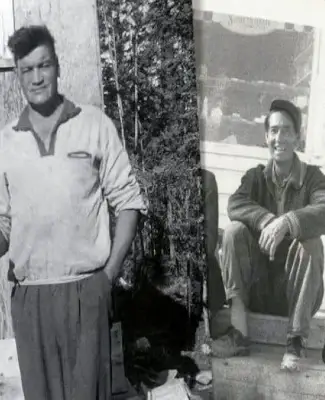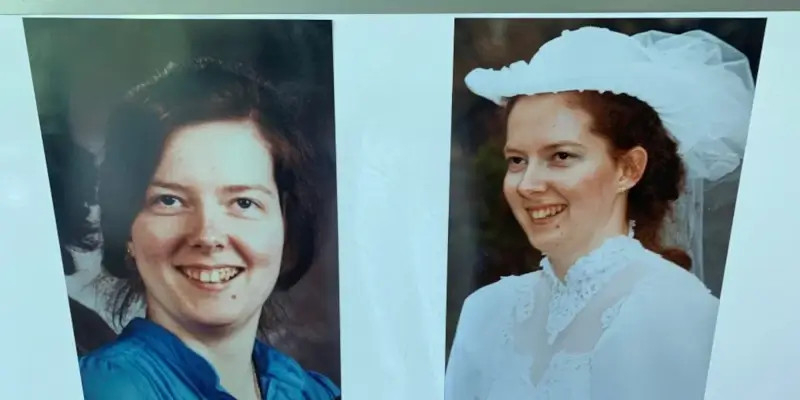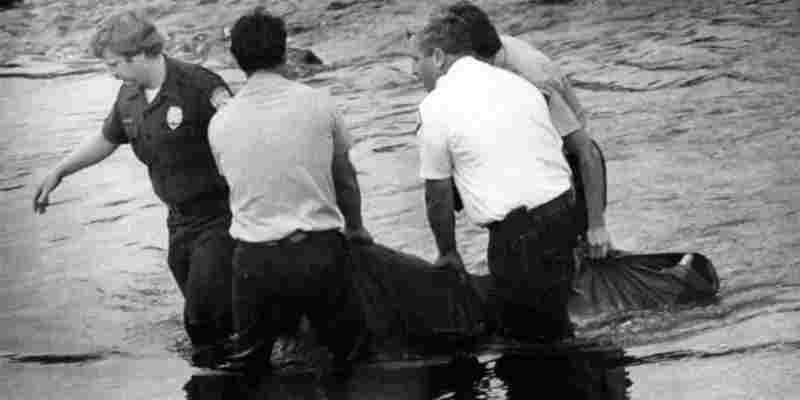La Ronge, Saskatchewan — In June 1967, 59-year-old Métis leader James Brady and 40-year-old Cree band councillor Absolom Halkett boarded a tiny plane and departed the small Saskatchewan town of La Ronge. From there, they flew north to a remote lake on a trip to prospect for uranium.
James Brady was born in the province of Alberta on March 18, 1930. His mother was Métis and his father was Scottish. Brady grew up in a family of seven. His parents owned a farm in southern Alberta. Brady attended St. Mary's College in Calgary. He went to medical school at the University of Toronto. After finishing his education, he worked as a doctor for a while. He eventually became a professor of medicine. Brady decided that he wanted to study anthropology. He had been interested in studying Native Americans for a long time. Brady believed that if he studied these people, he could learn something about himself. He began studying the Cree people in northern Canada.
It was a cold winter day in La Ronge. While flying across northern Manitoba, as the two men sat in the plane, they looked out at the beautiful scenery. The ground below them was covered with thick white snow, and the sky was a dark blue. Brady and Halkett realized they were lost. They were in a plane that was designed to carry four people, but only had room for two. So they decided to share the seat with another passenger. When they landed on the lake, they found themselves in a canoe, and they continued their journey on foot.
The only way to get out of the wilderness was to cross the rugged terrain of the Canadian Shield also called the Laurentian Plateau. For three weeks, they lived in a tent while they tried to locate a safe spot to build a shelter. They survived on wild berries and moose meat. They crossed the lake every day. They took turns sleeping in the tent.
By the time another plane arrived to restock their camp about a week later, the men were gone. The RCMP investigated, but neither the men nor their bodies were found. Police quickly ruled out foul play and closed the case within weeks. The best guesses to come out of the investigation: the men had gotten lost or been eaten by a bear.
To those who knew Brady and Halkett, however, those weren't plausible explanations. Both were experienced bushmen; they wouldn't just vanish. And why had the investigation wrapped up so quickly?
In the past few years, the bodies of what appears to be the two men were discovered. An American tourist and fishing guide found a waterlogged corpse with its wrists tied in the water where the men had been prospecting.
In a recent book, Cold Case North, author Deanna Reder writes that her mother, who knew the men, said they were taken by a UFO - to her it seemed more logical than any of the other theories. Others suspected the men's deaths were no accident, but assassinations. Brady specifically was an ardent communist who challenged the Canadian government and the church, advocating for First Nations' self-governance; back then, it was enough for the RCMP to surveil a person. Some even suspected they found a uranium site and were killed by business partners who wanted it for themselves.
If you are wondering why the authorities closed the case so quickly, there are many mysteries that exist in this world. Some of them are solved very quickly while others never are.









